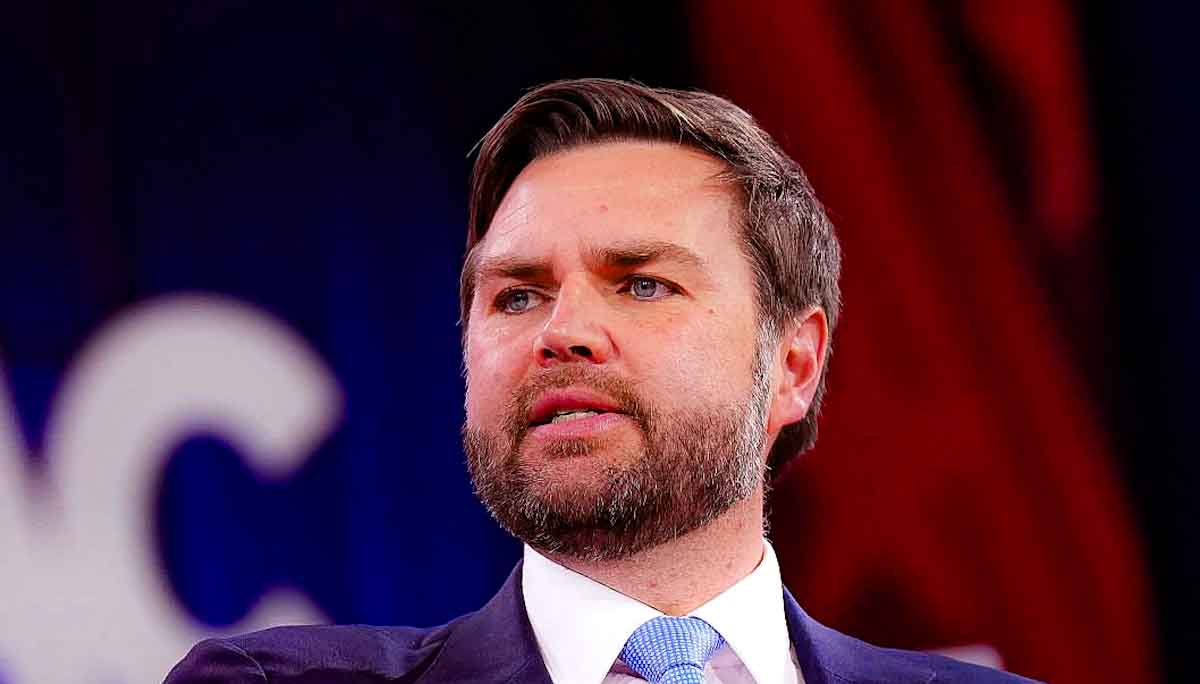On Thursday, February 20, 2025, Vice President JD Vance took the stage at the Conservative Political Action Conference (CPAC) in Washington, D.C., delivering a fiery address that has reignited the national conversation on immigration, national security, and the future of Western civilization.
Shared by conservative commentator Charlie Kirk on X, Vance’s remarks underscored a hardline position on illegal immigration, framing it as the “biggest threat” to both the United States and Europe. His words, broadcast live on Fox News, have sparked both applause and controversy, reflecting the polarized nature of the issue in today’s political landscape.
VICE PRESIDENT JD VANCE: “We cannot rebuild Western civilization. We cannot rebuild the United States of America or Europe by letting millions and millions of unvetted illegal migrants come into our country. It has to stop.
Thank God it stopped here. But it’s got to stop there.” pic.twitter.com/BSj0VDZ2ZB
— Charlie Kirk (@charliekirk11) February 20, 2025
In his speech, Vance declared, “We cannot rebuild Western civilization. We cannot rebuild the United States of America or Europe by letting millions and millions of unvetted illegal migrants come into our country. It has to stop. Thank God it stopped here. But it’s got to stop there.”
The statement, delivered with characteristic intensity, echoes the Trump administration’s policies and resonates with the conservative base that gathered at CPAC, an annual event known for its unapologetic advocacy of traditional values and stringent border control.
Vance’s focus on “unvetted illegal migrants” taps into longstanding concerns among many Americans about national security, economic strain, and cultural identity. His remarks align with recent data from The Center for Migration Studies, which reported an increase in the U.S. undocumented population to 11.7 million by July 2023, highlighting the scale of the issue.
Vance also pointed to economic pressures tied to immigration, arguing that securing the border and enforcing deportations could alleviate challenges like job competition and strained public resources—a sentiment echoed in post-speech interviews and web reports, such as those from The Post Millennial, which noted his emphasis on the border’s role in broader economic stability.
The vice president’s reference to “rebuilding Western civilization” is particularly striking. It suggests a broader cultural and ideological mission, one that harks back to historical anxieties about demographic shifts and their impact on societal values.
This rhetoric draws parallels to the 2015 European migrant crisis, as detailed in Wikipedia’s historical overview, where similar concerns about cultural change and integration fueled political backlash across the continent. Vance’s invocation of Europe—“it’s got to stop there”—implies a transatlantic solidarity among conservative leaders wary of mass migration’s effects, a theme he also touched on during his recent speech at the Munich Security Conference.
However, Vance’s stance is not without critics. Progressive voices and immigration advocates argue that his framing demonizes vulnerable populations and overlooks the contributions of immigrants to the U.S. economy and culture. They point to studies, like those from Pew Research Center, which indicate that while public anxiety about immigration exists, many immigrants—documented or otherwise—fill essential labor gaps and bolster economic growth.
The 2023 European Social Survey data, for instance, shows a nuanced public opinion, with only 25% opposing all Muslim immigration, suggesting Vance’s broad-brush approach may not fully reflect the complexity of public sentiment.
Moreover, Vance’s speech at CPAC comes at a pivotal moment for U.S. immigration policy. The Trump administration, of which Vance is a key figure, has prioritized border security, including the construction of additional border walls and aggressive deportation measures.
His remarks suggest a continuation of this agenda, bolstered by the recent reelection of President Donald Trump, as noted in supportive X replies to Kirk’s post. Comments like “Thank God we reelected Trump!” and “He is doing a great job” indicate strong grassroots backing among conservatives, who see Vance as a champion of their values.
Yet, the broader implications of Vance’s rhetoric raise questions about the balance between security and humanitarian responsibility. While he frames illegal immigration as a threat to Western civilization, critics argue that such language risks alienating communities and fueling xenophobia.
The historical context of the 2015 European migrant crisis, where politicians scapegoated migrants amid demographic shifts, serves as a cautionary tale. Vance’s call to “rebuild” Western civilization, while inspirational to some, may be perceived by others as exclusionary, ignoring the multicultural fabric that defines modern nations.
The response on X to Kirk’s post reflects this divide. Supporters praised Vance’s “truth” and “common sense,” with users like David R. Byer and Kenzie Marie In WA applauding his clarity. Others, however, injected humor or unrelated tangents, such as references to Andrew Tate’s controversial statements, diluting the focus on immigration.
This fragmentation underscores the challenge of maintaining a coherent public discourse on such a polarizing issue.
As the U.S. navigates its immigration challenges, Vance’s CPAC address serves as both a rallying cry for conservatives and a lightning rod for debate. His vision of a fortified border and a preserved Western identity resonates with a significant portion of the electorate, but it also invites scrutiny over its feasibility and fairness.
With immigration remaining a central issue in American politics, Vance’s words at CPAC will likely echo far beyond the conference halls, shaping the 2025 political narrative for months to come.
In the end, Vance’s speech is a microcosm of America’s broader struggle: how to balance security, economy, and humanity in an increasingly interconnected world. Whether his vision will gain traction or face pushback will depend on the evolving dialogue—and the data—surrounding immigration’s multifaceted impact.
